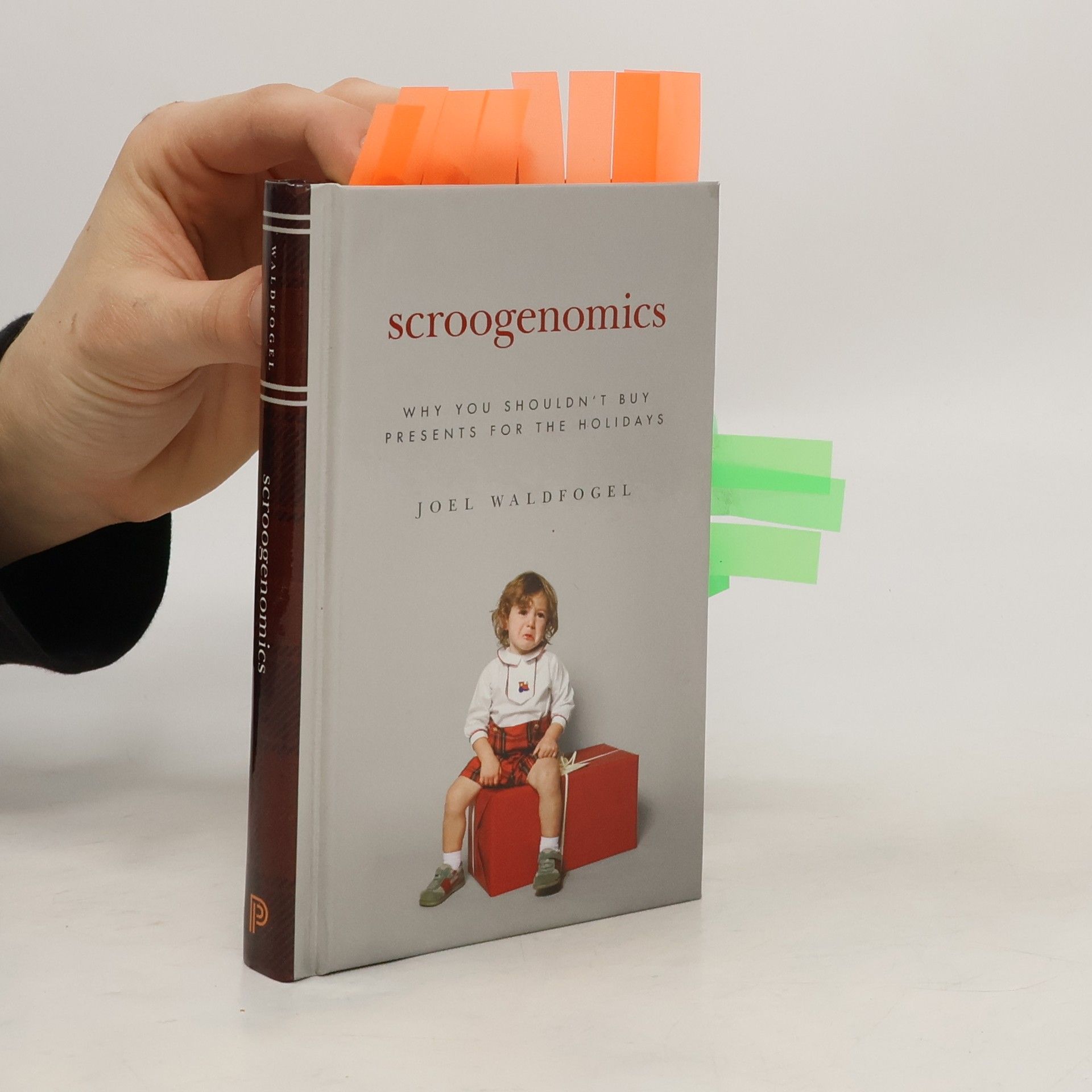Lively and informed, "Scroogenomics" illustrates how consumer spending generates vast amounts of economic waste. Economist Waldfogel provides solid explanations to show why it's time to stop the madness and think twice before buying gifts for the holidays.
Joel Waldfogel Libros
Joel Waldfogel es un economista y autor cuyo trabajo a menudo se adentra en la economía de la creatividad y la innovación. Su escritura explora cómo las personas crean y comparten nuevas ideas y cómo estos procesos impactan a la sociedad. Waldfogel se enfoca en comprender qué impulsa la creatividad y cómo se puede fomentar para producir resultados positivos. Sus análisis ofrecen perspectivas sobre las complejidades del ingenio humano y su influencia en el avance económico y social.



Digital Renaissance
- 320 páginas
- 12 horas de lectura
How digital technology is upending the traditional creative industries—and why that’s a good thing The digital revolution poses a mortal threat to the major creative industries—music, publishing, television, and the movies. Cheap, easy self-producing is eroding the position of the gatekeepers and guardians of culture. Does this revolution herald the collapse of culture, as some commentators claim? Far from it. In Digital Renaissance, Joel Waldfogel argues that digital technology is enabling a new golden age of popular culture—a digital renaissance. Analyzing decades of production and sales data, as well as bestseller and best-of lists, Waldfogel finds that the new digital model is just as powerful at generating high-quality, successful work as the old industry model, and in many cases more so.
Warum Sie diesmal wirklich keine Weihnachtsgeschenke kaufen sollten
- 188 páginas
- 7 horas de lectura
Weihnachten ist das Fest des Schenkens. Jedes Jahr zu Weihnachten werden weltweit Milliarden für Geschenke ausgegeben. Und jeder kennt das Gefühl, ein Geschenk zu bekommen – oder verschenkt zu haben –, das gar keine Freude macht. Stopp, ruft deshalb der renommierte Ökonomieprofessor Joel Waldfogel, hört endlich mit dieser irren Verschwendung auf! Volkswirtschaftler postulieren schon seit langem, dass jeder Euro, den man für sich selbst ausgibt, auch mindestens einen Euro Wert schafft. Bei den Beträgen, die für Geschenke ausgegeben werden, ist das leider anders: In mehreren Studien hat Waldfogel gezeigt, dass die meisten Beschenkten für ein Geschenk, das 100 Euro kostet, lediglich zwischen 70 bis 90 Euro ausgeben würden. Die Differenz: ein volkswirtschaftlicher Verlust, oder – wie die Ökonomen es nennen – ein Deadweight Loss. Weihnachten mag zwar vordergründig die Wirtschaft ankurbeln, ist aber insgesamt eine globale Orgie der Wertvernichtung. Dies zeigt Waldfogel in seinem inspirierenden, witzigen Büchlein, und er liefert jede Menge fundierter Argumente, sich daran nicht länger zu beteiligen. Selbstverständlich gibt Professor Waldfogel auch Anregungen für sinnvolle und wertstiftende Weihnachtsgeschenke, die immer Freude machen.